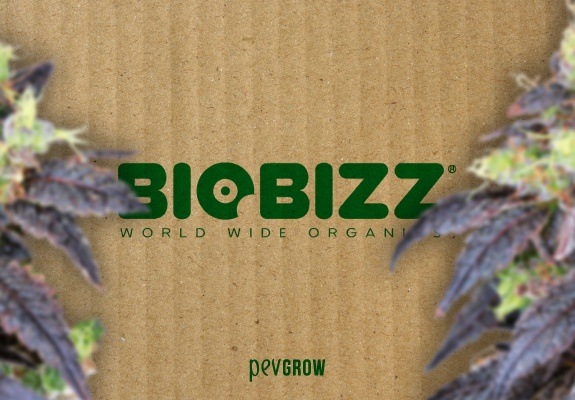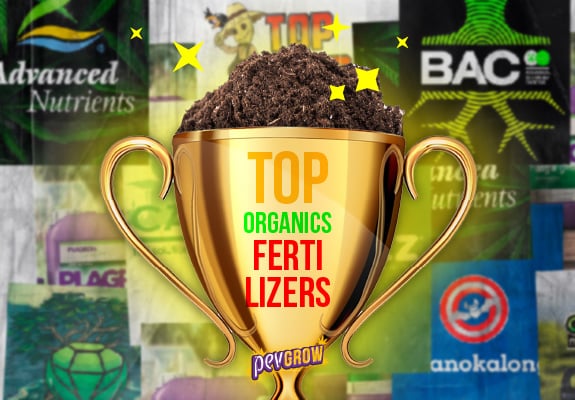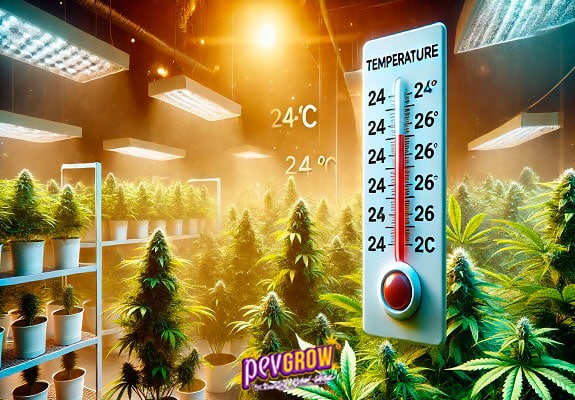- Discover the ultimate indoor growing chart for soil, coco, hydroponic, and aeroponic. It includes detailed pH and EC parameters for growth and flowering, along with nutrient recommendations to maximize your harvest.
- Hydroponics: The Formula 1 of weed growing
- The best substrates for soil cultivation


03-09-2024 06:51:34 - Updated: 3 September, 2024
Growing cannabis indoors can be a highly rewarding experience, but it requires precise planning and careful execution. A suitable growing chart will help you maximize your plants’ yield by effectively managing watering, fertilization, and controlling pH and electrical conductivity (EC). Below, we present the best indoor growing chart you can find and a complete guide to help you interpret it in the best way, focusing on the growth and flowering phases.
⭐ What is a Cannabis Growing Chart?
A cannabis growing chart is a detailed plan that specifies the management of watering, fertilization, and monitoring of pH and EC throughout the growing cycle. The chart is divided into two main phases:
- Growth Phase (4-5 weeks)
- Flowering Phase (8-10 weeks)
⛳ Structure of the Cannabis Growing Chart
Growth Phase (4-5 weeks)
During the growth phase, your goal is to develop a strong root system and healthy vegetative growth. Below is a recommended program for pH, EC, and necessary products:
| Week | Water pH | EC (mS/cm) | Recommended Products | Comments |
|---|---|---|---|---|
| 1 | 6.0 | 0.5 | Root Stimulator, Growth Base Fertilizer | Introduce mild nutrients to start growth. |
| 2 | 6.1 | 0.7 | Growth Base Fertilizer, Root Stimulator | Increase the frequency and amount of nutrients. |
| 3 | 6.2 | 1.0 | Growth Base Fertilizer, Microelement Additive | Increase the dose according to plant development. |
| 4 | 6.3 | 1.2 | Growth Base Fertilizer, Microelement Additive | Adjust pH and EC to support robust growth. |
| 5 (optional) | 6.3 | 1.4 | Growth Base Fertilizer, Flowering Stimulator | Prepare the plants for the transition to the flowering phase. |
Flowering Phase (8-10 weeks)
In the flowering phase, the focus shifts to the development of flowers and buds. The growing chart should be adjusted to provide the necessary nutrients for optimal flowering:
| Week | Water pH | EC (mS/cm) | Recommended Products | Comments |
|---|---|---|---|---|
| 1 | 6.3 | 1.2 | Flowering Base Fertilizer, Flowering Stimulator | Introduce specific nutrients for flowering. |
| 2 | 6.4 | 1.4 | Flowering Base Fertilizer, Flowering Stimulator | Increase the fertilizer dose. |
| 3 | 6.4 | 1.6 | Flowering Base Fertilizer, Flowering Stimulator, Bud Fattening (PK) | Continue increasing EC to support flower development. |
| 4 | 6.5 | 1.8 | Flowering Base Fertilizer, Flowering Stimulator, Bud Fattening (PK) | Adjust pH and EC to maximize bud production. |
| 5 | 6.5 | 1.8 | Flowering Base Fertilizer, Bud Fattening (PK) | Maintain optimal nutrient levels for abundant flowering. |
| 6 | 6.5 | 1.8 | Flowering Base Fertilizer, Bud Fattening (PK) | Monitor flower development and adjust as necessary. |
| 7 | 6.6 | 1.6 | Flowering Base Fertilizer, Bud Fattening (PK) | Prepare for root washing, if necessary. |
| 8 | 6.5 | 1.6* | Nutrient-Free Water for 8 or 9-week flowering varieties; if longer, repeat week 7. | Start root washing to clean the plants before harvest. |
| 9 | 6.4 | 1.4* | Nutrient-Free Water for 9 or 10-week flowering varieties; if longer, repeat week 7. | Continue root washing and monitor flower quality. |
| 10 (optional) | 6.3 | 0 | Nutrient-Free Water | Finish root washing and prepare for harvest. |
✨ The best chart for cultivation in coco fiber
Growth Phase (4 weeks)
| Week | Water pH | EC (mS/cm) | Recommended Products | Comments |
|---|---|---|---|---|
| 1 | 5.7 | 0.8 | Root Stimulator, Growth Base Fertilizer | Introduce mild nutrients to start growth. |
| 2 | 5.7 | 1.0 | Growth Base Fertilizer, Root Stimulator | Increase the frequency and amount of nutrients. |
| 3 | 5.8 | 1.2 | Growth Base Fertilizer, Microelement Additive | Increase the dose according to plant development. |
| 4 | 5.8 | 1.4 | Growth Base Fertilizer, Microelement Additive | Adjust pH and EC to support robust growth. |
Flowering Phase (8-10 weeks)
| Week | Water pH | EC (mS/cm) | Recommended Products | Comments |
|---|---|---|---|---|
| 1 | 5.8 | 1.4 | Flowering Base Fertilizer, Flowering Stimulator | Introduce specific nutrients for flowering. |
| 2 | 5.9 | 1.6 | Flowering Base Fertilizer, Flowering Stimulator | Increase the fertilizer dose. |
| 3 | 6.0 | 1.8 | Flowering Base Fertilizer, Flowering Stimulator, Bud Fattening (PK) | Continue increasing EC to support flower development. |
| 4 | 6.0 | 2.0 | Flowering Base Fertilizer, Flowering Stimulator, Bud Fattening (PK) | Adjust pH and EC to maximize bud production. |
| 5 | 6.1 | 2.0 | Flowering Base Fertilizer, Bud Fattening (PK) | Maintain optimal nutrient levels for abundant flowering. |
| 6 | 6.1 | 2.2 | Flowering Base Fertilizer, Bud Fattening (PK) | Monitor flower development and adjust as necessary. |
| 7 | 6.2 | 2.0 | Flowering Base Fertilizer, Bud Fattening (PK) | Lower EC slightly but continue feeding. |
| 8 | 6.2 | 1.8* | Nutrient-Free Water for 8 or 9-week flowering varieties; if longer, repeat week 7. | Start root washing to clean the plants before harvest. |
| 9 | 6.2 | 1.6* | Nutrient-Free Water for 9 or 10-week flowering varieties; if longer, repeat week 7. | Continue root washing and monitor flower quality. |
| 10 (optional) | 6.2 | 0 | Nutrient-Free Water | Finish root washing and prepare for harvest. |
🚀 Hydroponic and Aeroponic Growing Chart
Growth Phase (3 weeks)
| Week | Water pH | EC (mS/cm) | Recommended Products | Comments |
|---|---|---|---|---|
| 1 | 5.5 | 1.0 | Root Stimulator, Growth Base Fertilizer | Introduce mild nutrients to start growth. |
| 2 | 5.6 | 1.4 | Growth Base Fertilizer, Root Stimulator | Increase the frequency and amount of nutrients. |
| 3 | 5.7 | 1.8 | Growth Base Fertilizer, Microelement Additive | Increase the dose according to plant development. |
Flowering Phase (8 weeks)
| Week | Water pH | EC (mS/cm) | Recommended Products | Comments |
|---|---|---|---|---|
| 1 | 5.7 | 1.6 | Flowering Base Fertilizer, Flowering Stimulator | Introduce specific nutrients for flowering. |
| 2 | 5.8 | 1.8 | Flowering Base Fertilizer, Flowering Stimulator | Increase the fertilizer dose. |
| 3 | 5.8 | 2.0 | Flowering Base Fertilizer, Flowering Stimulator, Bud Fattening (PK) | Continue increasing EC to support flower development. |
| 4 | 5.8 | 2.2 | Flowering Base Fertilizer, Flowering Stimulator, Bud Fattening (PK) | Adjust pH and EC to maximize bud production. |
| 5 | 5.9 | 2.2 | Flowering Base Fertilizer, Bud Fattening (PK) | Maintain optimal nutrient levels for abundant flowering. |
| 6 | 5.9 | 2.0 | Flowering Base Fertilizer, Bud Fattening (PK) | Monitor flower development and adjust as necessary. |
| 7 | 6.0 | 1.8 | Flowering Base Fertilizer, Bud Fattening (PK) | Prepare for root washing, if necessary. |
| 8 | 5.9 | 1.6 | Nutrient-Free Water | Start root washing to clean the plants before harvest. |
🥇 Recommended Products
To ensure a successful crop, use the following products at each stage:
- Root Stimulator: Encourages the development of a strong root system.
- Growth Base Fertilizer: Provides the necessary nutrients for vegetative growth.
- Flowering Base Fertilizer: Specially formulated to support flower production.
- Flowering Stimulator: Enhances the density and size of the buds.
- Bud Fattening (PK): Increases phosphorus and potassium levels, essential for abundant flowering.
📌 Other Important Products
- Enzymes: They are responsible for removing excess salts from the substrate to prevent blockages and allow plants to feed better.
- Microorganisms: Trichoderma and mycorrhizae that protect the substrate and provide nutrients to the plant roots.
- CalMag: Essential when growing with soft water; in that case, it is added to the base water until reaching 0.4 or 0.5 EC.
🏞️ Additional Tips
- Regular Monitoring: Check the pH and EC of the water and nutrients frequently to maintain optimal balance.
- pH Adjustment: Keep the water pH within the recommended range for each stage.
- Customization: Adjust the growing chart according to the specific needs of your strain and growing conditions.
🏆 Best Indoor Growing Charts by Fertilizer Brand
Previously, I provided the best indoor growing charts based on the growing medium, but now I will leave you with the best charts depending on the fertilizer brand:
- Biobizz Growing Chart
- Advanced Nutrients Growing Chart
- Canna Growing Chart
- Plagron Growing Chart
- Hesi Growing Chart
- Top Crop Growing Chart
- GHE Growing Chart
- Atami Growing Chart
🎯 Conclusion
Following a well-structured growing chart is key to success in indoor cannabis cultivation. With a focus on controlling pH and EC, as well as the proper use of fertilizers and additives, you can maximize your plants’ yield and achieve an abundant, high-quality harvest. Before finishing, I would like you to check out this other article about the pH of cannabis, and if it’s not too much to ask, I also recommend you take a look at another post titled “The Importance of EC in Cannabis Cultivation“. At Pevgrow, we offer a wide range of products and resources to help you implement the best growing chart for your needs. Visit us for more tips and specialized products!






I finally understood how to interpret indoor growing charts thanks to this well-explained article, thank you so much for sharing it!